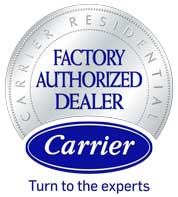Sick building syndrome (SBS) is a term used to describe a collection of symptoms experienced by building occupants after spending extended periods indoors. These symptoms arise due to poor indoor air quality and other environmental factors within the building. As more people spend significant time in commercial buildings, it becomes essential to recognize the signs of SBS and take preventive measures.

Continue reading as Superior Air discusses what you need to know about SBS.
Signs of Sick Building Syndrome
Respiratory Issues
Occupants may experience respiratory problems such as coughing, wheezing, throat irritation or difficulty breathing. These symptoms can be exacerbated by poor ventilation and the presence of allergens and pollutants in the air.
Headaches and Fatigue
SBS can cause persistent headaches and feelings of fatigue even after a good night’s sleep. Occupants may find it challenging to concentrate and perform daily tasks effectively.
Dry Eyes and Skin Irritation
These are common complaints associated with SBS. Inadequate humidity levels and the presence of airborne irritants can contribute to these symptoms.
Nausea and Dizziness
SBS may lead to feelings of nausea and dizziness in some individuals, making them uncomfortable and unproductive.
Odor and Discomfort
Occupants may smell unpleasant odors or have a general feeling of discomfort, indicating potential issues with ventilation or the accumulation of indoor pollutants.
How HVAC Maintenance Helps Prevent Sick Building Syndrome
A well-functioning air conditioning system filters out pollutants and keeps humidity at a balanced level, creating a healthier indoor environment. Proper air conditioning installation can ensure your system works efficiently and good indoor air quality is achieved, especially when followed by regular maintenance.
Here are the benefits of commercial HVAC maintenance.
- Improved Indoor Air Quality: Regular commercial air conditioning maintenance involves cleaning and changing air filters, ensuring proper ventilation, and inspecting ductwork. These measures help remove airborne pollutants, allergens, and irritants, significantly improving indoor air quality and reducing the risk of SBS.
- Balanced Humidity Levels: HVAC maintenance includes monitoring and regulating indoor humidity levels. Proper humidity control prevents the growth of mold and mildew, which are known contributors to respiratory issues and allergies.
- Effective Ventilation: Ensuring that the ventilation system is functioning correctly is vital to preventing the buildup of indoor pollutants. Adequate ventilation helps dilute and remove contaminants, providing occupants with fresh and clean air.
- Early Detection of Issues: Regular maintenance allows HVAC technicians to identify and address problems before they escalate. Timely air conditioning repair and adjustments can prevent indoor air quality issues from arising and creating an unhealthy environment.
- Energy Efficiency: A well-maintained HVAC system operates more efficiently, leading to energy savings and reduced emissions. An efficient system not only helps prevent SBS but also contributes to a more sustainable and eco-friendly building environment.
Find a Reputable HVAC Specialist
By prioritizing indoor air quality and regularly servicing HVAC systems, building owners and facility managers can prevent the onset of SBS, enhance occupant satisfaction and promote overall building efficiency. If you need air conditioning repair, maintenance, or installation, reach out to Superior Air. Call us at (559) 734-2002 or complete our contact form to schedule a consultation. We serve clients in Visalia, CA, and nearby areas.



